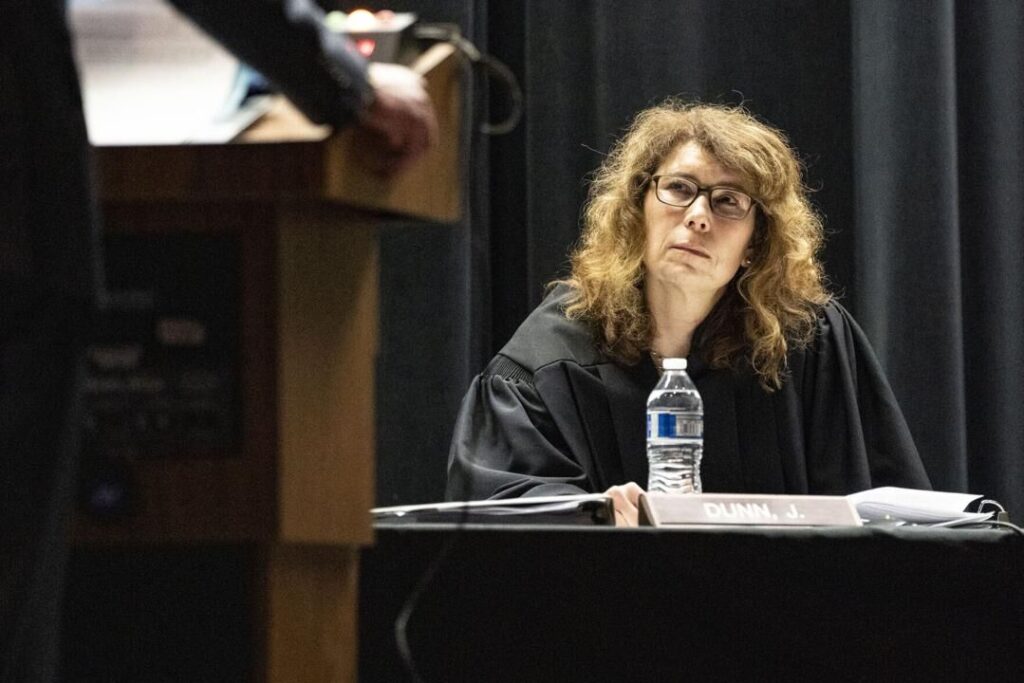Colorado justices leave question unanswered of who should handle interstate couple’s divorce
The state Supreme Court acknowledged its decision on Monday, involving a Denver judge’s erroneous finding that she had jurisdiction over a divorce between a Nebraska man and his Colorado wife, did not answer the question of how a court could, in fact, handle the case.
“In our review, we found no straightforward answer to this important question,” wrote Chief Justice Brian D. Boatright in the May 6 opinion.
For Jeffry Howard Green, the answer appeared obvious: Nebraska courts could handle his divorce because that is where he lives and where the “marital domicile” is located. Barbara Henderson Green, meanwhile, denied that she was subject to Nebraska’s jurisdiction and, instead, her husband had the necessary “minimum contacts” with Colorado to give courts there the power to oversee the divorce.
But the Supreme Court noted that courts can exercise jurisdiction over litigants in a variety of ways, and the specific question at hand was not Jeffry Green’s minimum contacts, but his domicile. Notwithstanding Jeffry Green’s financial investments in Colorado, he lives in Nebraska.
“Consequently, for a Colorado court to exert general personal jurisdiction over an individual, the individual must be domiciled here, full stop,” wrote Boatright. “Even though Mr. Green owns several houses in the state, real estate ownership doesn’t automatically equate to domicile.”

The Greens filed for divorce on the same day in April 2022. Jeffry Green filed his paperwork in Douglas County, Neb., where he lived, and Barbara Green filed hers in Denver, where she lived.
Denver District Court Judge Christine C. Antoun decided Jeffry Green’s contacts with Colorado were “continuous and systematic enough” that the case was subject to Colorado’s jurisdiction, rather than Nebraska’s. However, in a seeming contradiction, Antoun found she had general personal jurisdiction — meaning Jeffry Green was susceptible to any claims in Colorado — rather than specific personal jurisdiction, which implicates a person’s contacts with a state.
Jeffry Green appealed directly to the Supreme Court, arguing he was an out-of-state resident whose minimal ties to Colorado should not require him to defend himself in Colorado’s courts.
“Contrary to Wife’s claim, the ‘label’ matters,” his attorneys wrote.
The Supreme Court asked the Greens to address what would happen if two spouses are domiciled in different states, such that neither state’s courts would have general personal jurisdiction for a divorce.

FILE PHOTO: The Ralph L. Carr Colorado Judicial Center, on Tuesday, Sept. 13, 2022, in Denver, Colo. (Timothy Hurst/The Denver Gazette)
Barbara Green’s attorneys argued her husband’s contacts with Colorado were sufficient to notify him he was subject to the state’s jurisdiction.
“Husband could foresee being haled into a Colorado court where he has jointly purchased several properties with Wife in Colorado, engages in intentional conduct to build his and his family’s wealth in Colorado, and provides financial support to Wife in Colorado while still married,” they wrote.
Jeffry Green’s lawyers, in contrast, ticked through various types of jurisdiction that courts have:
• General personal jurisdiction, which was the subject of the appeal
• Specific personal jurisdiction, involving a person’s contacts with a state
• Consent, in which a person agrees to subject themselves to a court’s jurisdiction
• “Tag jurisdiction,” where a person is served with notice of the case when they are physically in the state
But the short answer to the Supreme Court’s question, his lawyers added, is that “(n)either forum can exercise general personal jurisdiction over the party not domiciled there.”
Boatright, in noting the Supreme Court had never addressed the question before for individual litigants, agreed Colorado courts did not have general personal jurisdiction over Jeffry Green as a Nebraska resident. Moreover, Antoun already found she did not have specific personal jurisdiction through his contacts with Colorado.
“If general jurisdiction is not available, courts may still be able to hear a dissolution of marriage proceeding through other jurisdictional tools,” Boatright wrote, adding that other possible grounds for jurisdiction were not part of the appeal.
The case is In the Marriage of Green.











